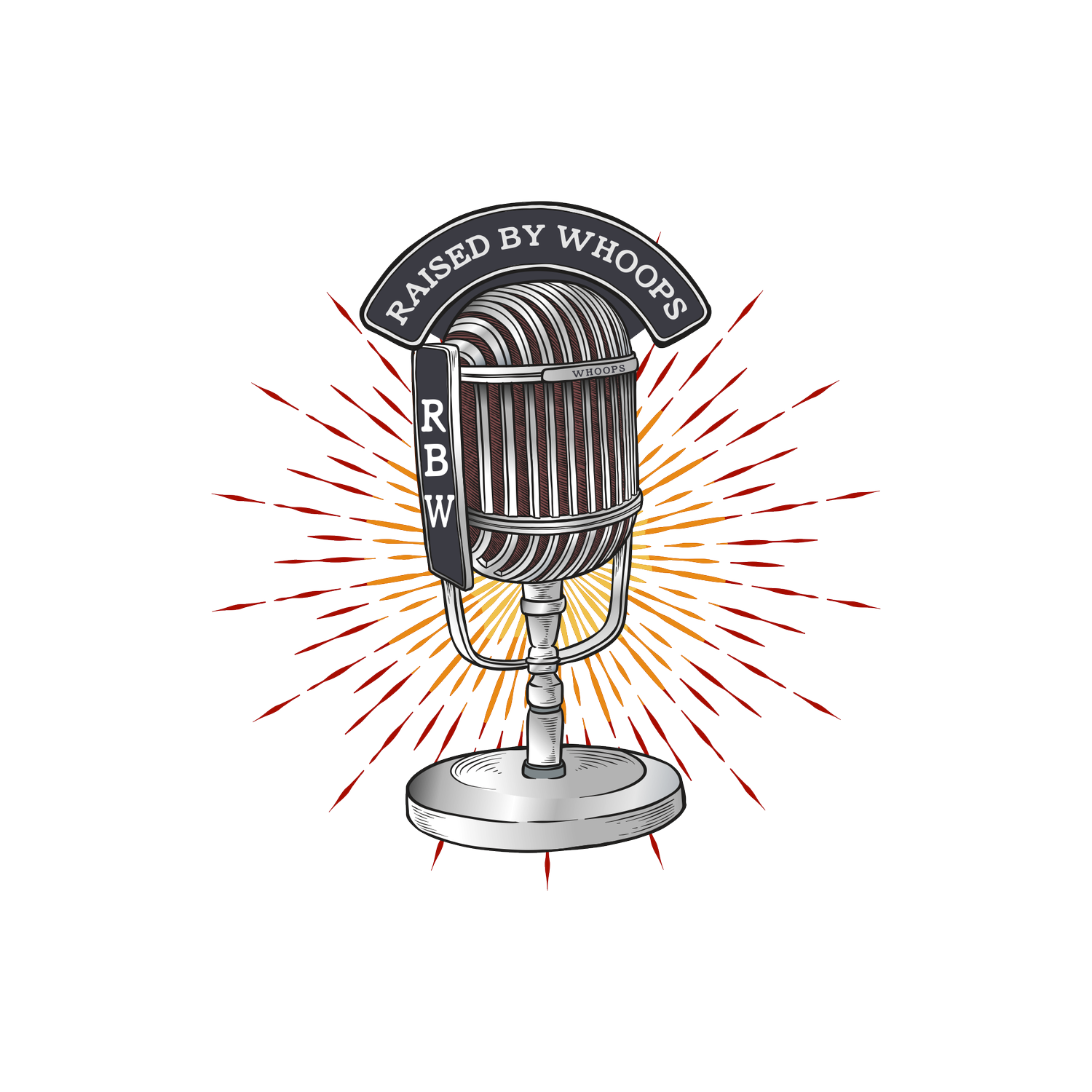Wicapi Omani
A brief introduction to Gord Downie
Story written and narrated by: Glenn Vanderkloet
Tunes in this episode:
Hazlehurst - Pale Cricket
Help Me Remember - Hayes Carll
Flamenco - The Tragically Hip
Wicapi Omani
I generally don’t care about things that find their way into popular culture. I don’t necessarily shun popular things - although sometimes I do - I just like what I like and for the most part, my taste doesn't align with what’s trending. A more concise description of someone like me is a cynic or an outcast although a more flattering and less accurate term might be maverick. For instance, I don’t have much interest in the Star Wars or Marvel franchises, I don’t own a Fitbit or an Apple Watch, and I can’t stand Drake, Lana Del Ray, Justin Beiber, Taylor Swift, or any other pop star who takes up way too much space and travels with an entourage. I’ve also never purchased an Instant Pot, a Roomba, Air Pods, or an Essential Oil Diffuser. Ok, I’ll end the hatefest there. These irrelevant and less than fascinating insights into my personality are not an attempt to impress through hipster indifference, I just don’t give a shit about what captures the attention of the masses and I couldn't care less about “keeping up” or “staying current.” And if I’m being totally honest, I do have a bit of a contrarian streak that rejects the algorithmic, force fed nature of what we purchase and what we are entertained by. To put a bow on this rant that no one asked me to go on, I’m aware that my cynical view of the world is a major impediment to me enjoying life so with that in mind, I do try extra hard to see the upside in things. In other words, I’m not nearly as big of an asshole as I sound.
All that being said, once in a while, someone or something breaks into the mainstream that’s too appealing or practical for me to ignore. I wear Birkenstock sandals because they fit my abnormally wide feet and they’re comfortable as hell. I drive a Toyota Corolla because they rarely break down. And even though it’s one of the most popular books of all time, The Catcher in the Rye is among my favourite works of fiction. However, neither Holden Caulfield nor my worn out Birkenstocks are what I want to talk about in this piece. Instead, I’d like to shed some light on a Canadian icon whose popularity at different times throughout his career rivaled that of globally recognized canucks like Wayne Gretzky, Joni Mitchell, or Terry Fox. To be clear, he never achieved the same international acclaim as the aforementioned folks, however within the borders of the Great White North, I’m certain he could’ve run a successful campaign for Prime Minister. I’m referring to the singer/songwriter, poet, environmentalist, social justice advocate, and Tragically Hip frontman, Gord Downie. And despite his fame and pervasiveness in Canadian society along with my aversion to hero worship and most things popular, Gord ranks in my top five most admired people of all time. Maybe top three.
I want to start with some biographical context. Gord was born in Kingston, Ontario in 1964 and was raised in a smaller, neighbouring town. From what I can gather, and information is scarce due to Gord’s fiercely private nature, he was a fairly typical Canadian kid who loved hockey and the outdoors. He was particularly fond of Lake Ontario which was a stone’s throw from his childhood home. His love of the lake would remain a constant throughout his life.
He spent the entirety of his childhood and adolescence in the Kingston area and liked it so much apparently that he stuck around for University. Gord attended Queens, one of Canada’s most prestigious institutions of higher learning, where he earned a degree in English Literature. It was while attending Queens that he first met his future bandmates in The Tragically Hip. There’s a much more detailed origin story of the band but essentially, they formed in 1984 and began formally releasing music in 1987.
Initially, The Hip were seen as a straight ahead, blues-rock band with Gord as their shaggy haired, enigmatic lead singer and lyricist. An unfussy, blue collar outfit that appealed to the college crowd and went well with a Friday night and a couple of Molson Canadians. Their first three full length records, and arguably their most enduring, were massive hits within Canada and established them as one of the country’s premiere bands and live acts. The songs on these albums were heavy on the bar band aesthetic with catchy guitar riffs and lyrics penned by Gord that dealt with his interest in history, geography, literature, and sports as well as both Canadian and American cultural minutiae among other esoteric topics.
Beginning with their fourth full length record, Day For Night, The Hip started their evolution from a college rock bar band into a moodier, more experimental outfit that took bigger risks lyrically and sonically. With these risks came the inevitable alienation of some of their fans but throughout many albums with many different production angles, the band remained hugely popular in Canada, even if that god-like popularity didn’t reach beyond Canadian soil. To be clear, The Hip had a global fanbase, it just wasn’t anything close to what they attracted in their homeland.
In the midst of The Hip’s burgeoning success, Gord began sprinkling in solo albums every few years or so. These records were quieter and more introspective, blending Gord’s lyrical genius with more eclectic instrumentation. With his first solo effort, Coke Machine Glow, Gord included a book of poetry with the album which cemented his status as a literary force as well as a legendary frontman and singer/songwriter.
In addition to his success in the music and literary worlds, Gord was a husband and a father of four. He also used his name recognition and platform to promote many other causes dear to him. He was a champion of the Toronto arts scene where he had moved after The Hip’s formation, always propping up artists and bands he felt were worthy of attention. He was also a Lake Ontario Waterkeeper which is an organization dedicated to maintaining and sustaining clean, fresh water. Furthermore, he worked hard to shed much needed light on the rights and concerns of the Indigenous peoples in Canada.
In May of 2016, it was announced via The Tragically Hip’s website that Gord had terminal brain cancer. He had suffered a seizure while visiting family in Kingston in December of 2015 and was told of the grim prognosis a few days later after further evaluation. Gord had the tumour surgically removed and went through several rounds of radiation before breaking the news to the public. After sharing the awful news, the band went on to say that Gord felt well enough to perform one last cross country tour before the cancer inevitably returned and with the help of his bandmates and a travelling medical team, plans were put into motion.
On July 22nd, 2016, the band started the tour in Victoria, BC and continued on through Alberta and Manitoba before a string of dates in Ontario, culminating with a final show in Gord’s hometown of Kingston on August 20th that was streamed on the CBC, Canada’s national public broadcaster. To say these shows were emotional is an obvious understatement but Gord made it through both physically and emotionally and the entire country was grateful and inspired by his courage in the face of a terribly dealt hand.
Gord made a few more public appearances after this final tour including a couple solo performances of his October 2016 record, The Secret Path which was a concept album about Chanie Wenjack, a young indigenous boy who died in 1966 after escaping from an Indian residential school. In December 2016, The Assembly of First Nations honoured Gord for his work on reconciliation by giving him the name Wicapi Omani, which means “walks with the stars” in the Lakota language. His last public appearance was a fundraiser on Parliament Hill in Ottawa in July of 2017. He died in October of that year.
Gord endeared himself to the entire country of Canada and beyond because he was unapologetically himself. He floated between multiple worlds and refused to be placed in a box. He was an avid outdoorsman who loved nature and he was also an incredibly sensitive and talented poet. He adored Canada’s national sport of Hockey and was also an expressive dancer and style icon. He loved his home country of Canada yet he was far from a nationalist. I could go on. The point is that Gord was complicated and layered and he was proud of being difficult to pin down.
Throughout his career, The Hip were perpetually labelled as Canada’s band but Gord was never fully comfortable with that designation. Sure, he wrote and sang plenty about Canadian geography, history, and culture in general but he also wrote and sang a great deal about The United States and other countries. He didn’t belong to anyone or anything. I like to think that the only things he served were his art, the people he loved, and his work toward the betterment of society at large.
As I said at the beginning of this, I am inclined toward cynicism, which I’m not proud of, and I’m easily put off by obnoxious, fake, or self congratulatory behaviour. For me, Gord was the antidote to that. He once sang in his song “Spoon” that “Help is all we to this dumb planet bring”. He embodied that sentiment and was a breath of fresh air in a sometimes suffocating and stagnant world. Canada lost a giant of a human when Gord died but I know that his unique and generous spirit will live on through his kids and all the environmental and humanitarian work he accomplished. If you don’t know about Gord, look him up. You’ll be glad you did.


